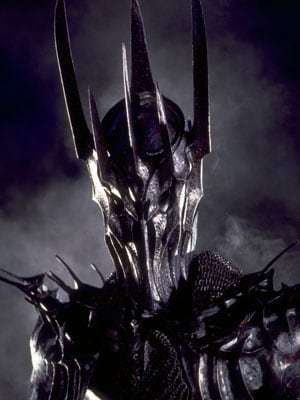The Volokh Conspiracy
Mostly law professors | Sometimes contrarian | Often libertarian | Always independent
More on Cersei, Sauron, and the logic of voting for the lesser evil

Canadian columnist John Robson has written a thoughtful op ed responding to my post defending the idea of voting for a lesser evil in an election where the only two realistic options are both very bad. To make my point, I used the (mostly) hypothetical example of an election where the only two options are Queen Cersei from Game of Thrones and Sauron, the Dark Lord from Tolkien's Lord of the Rings. Both are bad, but one (Cersei) is a much lesser evil than the other. By averting the triumph of Sauron, you can potentially save many innocent people from oppression or death.
Robson, however, contends that you should vote for a superior third party alternative:
As some people indignantly remind me to this day, I refused to endorse the Harper Tories in the 2015 Canadian election despite regarding Trudeau's Liberals as highly unsuitable for office. And I don't regret it, despite their frivolity and brazen dishonesty…, because Somin's impressive argument is quite wrong.
First, his assumption that the other candidates "have zero chance of prevailing" crucially begs the question. If the vast majority believes only awful candidates can prevail, it becomes true. But if enough people vote for Gandalf, he wins. So we should….
Those who vote for the lesser evil are responsible for the bad choices we face because believing decade after decade that we must take the muck on offer from our own party to avoid the other party's muck is why all we get is muck….
Somin's analogy is also misleading in that Sauron didn't need to be elected to take over Middle Earth, and despite the apocalyptic language of politics not even the president of the United States, let alone Canada's prime minister, can turn us all into wraiths….
Somin is a bit right that no individual vote matters much, for a major or "minor" party. But he's mostly wrong, because candidates win by getting a lot of those individual votes cast in isolation. Bad candidates if we hold our noses in the booth. Good ones if we don't.
So I'm voting for Gandalf. Because if we all do it, it works.
It's true that, if enough people vote for Gandalf, he would win. But in some situations, that's not a realistically feasible option. The vast majority of individual citizens control only their own vote (or, perhaps, those of a few friends and family members). They cannot alter the underlying distribution of political opinion in society, at least not in time to have an effect on the current election cycle. They cannot change the fact that the vast majority of the electorate prefers Cersei or Sauron to Gandalf, which ensures that he cannot possibly prevail. Even if the rest of the electorate behaves the way it does only because they underestimate the extent of latent public support for Gandalf, a single ordinary voter has no ability to disabuse them of that notion. In most "first past the post" elections, the only power any given voter possesses is a (very small) probability of casting a decisive vote between the two options that have a real shot at winning.
Voting for a lesser evil in such situations is entirely compatible with working to try to change public opinion, such that the options might be better next time around. If, as Robson puts it, the two major parties are giving us "muck," it is usually because there isn't sufficient public support for better policies and candidates. The way to change that - if there is one - is to change the underlying distribution of public opinion so that the parties will have incentives to present us with better choices. We can also work to strengthen support for reducing the overgrown power of government, so that a bad president cannot cause as much harm as he could at present. But that is not going to be accomplished by casting a futile protest vote.
Voting for a lesser evil has only a very small chance of making a difference. But the odds against a protest vote doing any good are even higher.
Finally, it's true that no candidate in the current US election is as bad as Sauron. But even if neither of the two major-party evils is quite as bad as Sauron, one can still be far worse than the other.
As noted in my original post, it is not yet certain that Cersei and Sauron's real-world analogues will be the only viable options in this year's presidential election. There is still a chance that Libertarian candidate Gary Johnson will have a real shot at winning. The odds are still very much against him, but not nearly as much so as with most other third party candidates. We will learn more about his chances over the next few weeks, as additional polling data comes in. But if it turns out that the major-party evils really are the only two feasible options, there is good reason to cast a vote for the one that will cause less harm.


Show Comments (0)